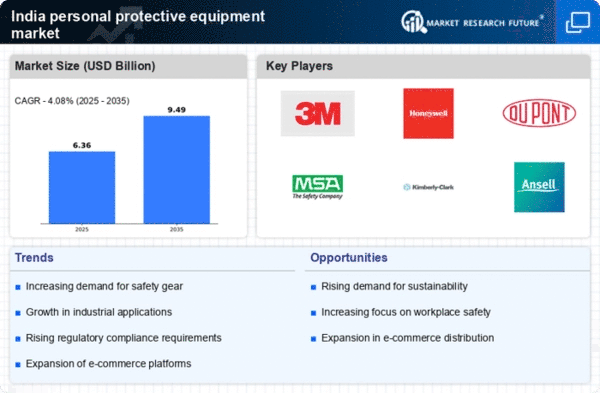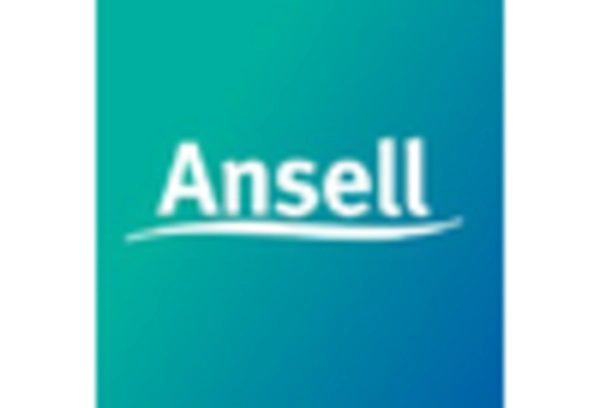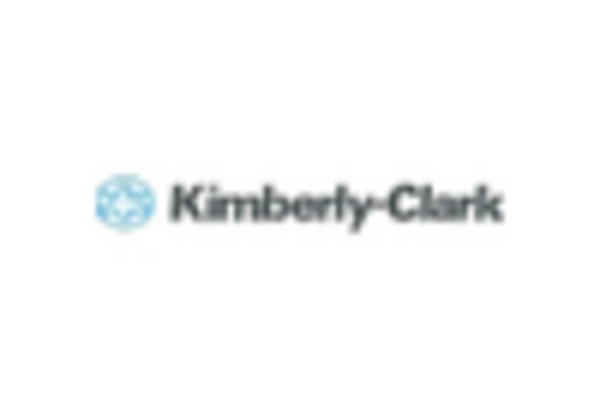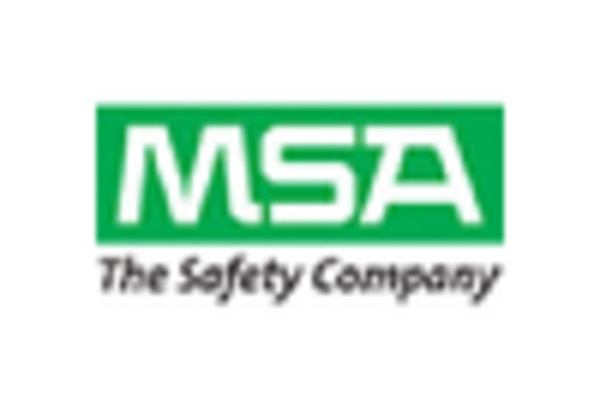Growth of the Construction Sector
The construction sector in India is witnessing robust growth, which is significantly impacting the personal protective-equipment market. With numerous infrastructure projects underway, the demand for safety gear is escalating. The government’s focus on improving infrastructure and housing is likely to sustain this growth trajectory. As of November 2025, the construction industry is expected to contribute substantially to the overall demand for personal protective equipment, with projections indicating a potential increase of 12% in market size over the next few years. This trend underscores the critical role of safety equipment in ensuring worker protection on construction sites.
Increased Investment in Healthcare
The healthcare sector in India is experiencing increased investment, which is positively influencing the personal protective-equipment market. With the rise in healthcare facilities and the emphasis on patient safety, there is a growing need for protective gear among healthcare professionals. This includes items such as gloves, masks, and gowns, which are essential for infection control. The personal protective-equipment market is likely to benefit from this trend, with estimates suggesting a growth rate of around 9% annually. As healthcare providers prioritize safety and compliance with health regulations, the demand for quality protective equipment is expected to rise.
Regulatory Compliance and Standards
The personal protective-equipment market in India is significantly influenced by stringent regulatory compliance and safety standards. The government has established various guidelines to ensure the safety of workers across multiple industries, including construction, manufacturing, and healthcare. Compliance with these regulations not only enhances the safety of employees but also drives demand for high-quality personal protective equipment. As of 2025, the market is projected to grow at a CAGR of approximately 8.5%, largely due to the increasing emphasis on workplace safety regulations. Companies are compelled to invest in certified protective gear to meet these standards, thereby propelling the personal protective-equipment market forward.
Rising Awareness of Occupational Hazards
In India, there is a growing awareness regarding occupational hazards and the importance of safety measures in the workplace. This heightened consciousness among employers and employees alike is driving the demand for personal protective equipment. Industries such as construction, manufacturing, and healthcare are particularly affected, as workers are increasingly educated about the risks associated with their jobs. The personal protective-equipment market is expected to expand as organizations prioritize employee safety and invest in protective gear. Reports indicate that the market could witness a growth rate of around 10% annually, reflecting the increasing commitment to safeguarding workers from potential hazards.
Technological Advancements in Manufacturing
Technological advancements in manufacturing processes are playing a crucial role in shaping the personal protective-equipment market in India. Innovations such as the use of advanced materials and smart technologies are enhancing the functionality and comfort of protective gear. For instance, the integration of lightweight materials and moisture-wicking fabrics is making equipment more user-friendly. As manufacturers adopt these technologies, the market is likely to experience a surge in demand for high-performance personal protective equipment. The market is projected to reach a valuation of approximately $1.5 billion by 2026, driven by these advancements that cater to the evolving needs of various industries.
















